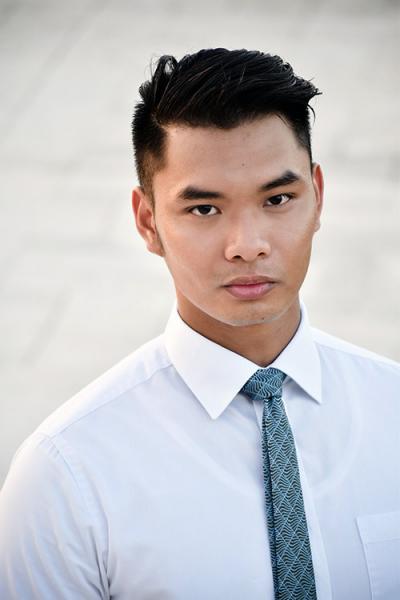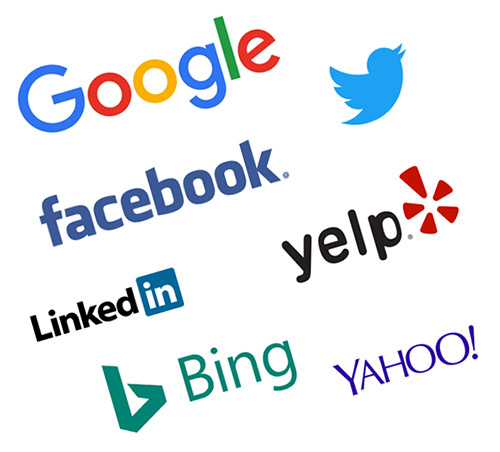Local SEO for Insurance Agents
Boost your online visibility with local SEO for insurance agents. Increase traffic, brand authority, and conversions by targeting local keywords, optimizing your website for local searches, and leveraging Google My Business. Our expert team will create a tailored SEO strategy to help you rank higher in local search results, attract qualified leads, and grow your insurance business.
Read more Secured with SHA-256 Encryption






Table of Contents
Table of Contents


Commercial Lines Coverage Specialist
Michael Vereecke is the president of Customers First Insurance Group. He has been a licensed insurance agent for over 13 years. He also carries a Commercial Lines Coverage Specialist (CLCS) Designation, providing him the expertise to spot holes in businesses’ coverage. Since 2009, he has worked with many insurance providers, giving him unique insight into the insurance market, differences in ...
Michael Vereecke


Sr. Director of Content
Sara Routhier, Senior Director of Content, has professional experience as an educator, SEO specialist, and content marketer. She has over 10 years of experience in the insurance industry. As a researcher, data nerd, writer, and editor, she strives to curate educational, enlightening articles that provide you with the must-know facts and best-kept secrets within the overwhelming world of insurance....
Sara Routhier


Licensed Real Estate Agent
Angie Watts is a licensed real estate agent with Florida Executive Realty. Specializing in residential properties since 2015, Angie is a real estate writer who published a book educating homeowners on how to make the most money when they sell their homes. Her goal is to educate and empower both home buyers and sellers so they can have a stress-free shopping and/or selling process. She has studi...
Angie Watts
Updated March 2024
Welcome to our comprehensive guide on Local SEO for Insurance Agents. In this article, we will delve into the importance of optimizing your online presence to target local customers effectively. Whether you’re an independent insurance agent or part of an agency, implementing local SEO strategies can significantly boost your visibility, attract qualified leads, and ultimately drive more conversions.
By the end of this guide, you’ll have a solid understanding of how to enhance your online visibility and stand out in the competitive insurance market. Ready to take your insurance business to new heights? Enter your zip code now to compare rates from the best insurance providers and start saving today.
What is Local SEO?
Google’s recent algorithm update (unofficially referred to as the “pigeon” update) has made local presence and visibility more important than ever before for all businesses. If you’re a national insurance agent, you know just how competitive the industry can be. So how can you become visible to users searching for local results and dominate the first page of the Search Engine Results Page?
Answer: Implement a planned and effective local SEO strategy! Optimizing your web presence with local SEO tactics can help you generate new traffic, establish brand authority, and most importantly, increase conversions and improve ROI!
Free Insurance Comparison
Compare Quotes From Top Companies and Save
Secured with SHA-256 Encryption
Why Local SEO Matters
Local SEO influences online success more now than ever before. In 2015, Google is known to reward businesses that are seen as locally based, allowing the localized listings to appear before organic results on a map and even outrank larger corporate websites. In the image below, you’ll notice that Google has given local results higher priority than corporate sites – even those that contain local keywords in the title.

Keywords
All SEO begins with keywords, and local SEO is no different! Determining your core keywords and keyword phrases is critical to a successful local SEO strategy. Let’s say you’ve decided that “Denver Insurance Agent” is the keyword phrase you would prefer to rank for. Perform keyword research (there are a number of free keyword research tools, but the most common is Google Adwords’ Keyword Planner) to determine which keywords you should implement in your local SEO strategy. Aim for keywords with the highest search volume and the lowest competition, if possible.
Content
Once you have found a few high traffic, low competition keywords/phrases to implement, you can begin adding these keywords into your content. Areas to add localized keywords include:
1. HTML Elements
Begin by adding your geo-localized keyword(s) to your site’s most important HTML elements (page title, page description, alt tags on images, etc.). A highly localized page will include your core keyword in several locations, such as in the example below:
Landing Page URL: www.yourinsuranceangency.com/denver
Page Title (stick to less than 60 characters!): Denver Colorado Home Insurance Agent | Your Brand
Page Description: Your Brand Insurance is your local Denver, Colorado Independent insurance agency, providing personal and business insurance services!
H1: Your Brand Insurance in Denver, Colorado
H2: Independent Insurance Agency in Denver Colorado
Image Alt Tag(s): (short image description) (Your Brand) (your target location)
Footer:
Your Brand Insurance Agency
(123) 456-6789
1234 Example Dr.
Denver, CO 80123
2. On Page Content
Once your meta content is optimized for local searches, you can begin adding your core keyword(s) to on page content. Add your target city and state into the text areas of your landing page, ensuring each sentence sounds natural (avoid keyword stuffing!). A keyword density of 1-2% is recommended by experts.
3. Quality Articles / Blog Posts
Creating original, useful content that is relevant to your target city and state will not only give Google an extra heads-up that you belong in the local search results, it will also create more chances for your site to organically rank in the SERPs (search engine results page), pushing competitors further down and boosting your chance of an organic visit. Reach out to local bloggers to set up localized guest posts, and share your geo-targeted blog content consistently on social media sites for best results.
Read more: Best Business Insurance for Bloggers
4. Rich Snippets
Rich Snippets are an important factor in local search results. Rich Snippets and Structured Data help Google understand what your site is about. Including structured data allows Google to present your website’s data, such as address, products, reviews, etc, directly in the SERP. Bonus: the more information included in your listing, the more “real estate” your listing takes up on the results page, allowing less room for competitors to appear on the page! The easiest way to add them is to use Google Webmaster Tools’ Data Highlighter.

Note the 5 star rating, number of reviews, and other information included in the search result.
Free Insurance Comparison
Compare Quotes From Top Companies and Save
Secured with SHA-256 Encryption
Off-Page Content
Once your on-page content is optimized for local searches, begin creating and optimizing off page content for local search. Off-page content includes:
1. Google My Business
Once called Google Local, Google My Business is critical to appearing in Google’s local search results. Start by creating a Google+ page for yourself/your company, then link Google+ to Google My Business. In order to make sure your business is real and truly located where you say it is, Google requires your business to be verified either via phone or postcard. Phone verification is immediate, while a postcard can take 1-2 weeks for verification. Google also allows you to manage your G+ account and Google My Business account in the same location, ensuring consistent data across all Google platforms.
Google My Business Updated Guidelines
2. Local Directories and Listings
Adding and optimizing your business information, such as address, city, state, URL, images and logos, etc., to reputable directories, carrier biographies, and listings can have a profound positive effect on your local SEO efforts. While each industry has niche listings, such as this site’s Insurance Agent Directory there are a few main directories that are relevant for all industries (BBB, Yelp, etc.). Tools like MozLocal can not only help you determine which directories to add your geo-targeted landing pages, but can also help you identify duplicate listings or incomplete/inconsistent NAP data (which is actually detrimental to your local SEO!).
NAP stands for Name, Address and Phone Number. Search engines use NAP information to cross reference company information between different websites and directories. Ensuring your agency NAP data is correct and consistent across the web will provide a major ranking benefit for your site.
3. Reviews
It’s no surprise that Google rewards those who have excellent reviews with higher search rankings and demotes those who have negative or no reviews. Encourage your customers or clients to review your business (but never pay for reviews). Reviews and ratings can appear alongside search results and map results, creating a strong brand reputation and establishing trust with your users.
4. Links
Link Building is a critical part of any SEO Strategy. Consider links to your site to be the internet’s version of “recommendations”. If an untrustworthy or low quality website recommends your website, you too will be seen as untrustworthy and low quality. However, if a reputable and high quality website recommends you, you too will be seen as reputable and high quality. The key to link building success is quality over quantity – if a person or website says they can get your site “thousands of links fast!” or ask you to pay for links, run far away!
Local Link Building
In addition to links to your geo-targeted landing page created on local directories, high quality links from reputable businesses in your target location will greatly affect your local search rankings. Reach out to local businesses that are relevant to your industry and ask to exchange links. Make sure all websites that link to you are high quality and do not use spammy techniques, as linking to low quality sites can be extremely detrimental to SEO efforts.
Internal Link Structure
While not as important as links from other local reputable websites, interlinking your own content with keyword-rich anchor text will help Google learn what your website is about. Link your blog posts and sub-pages to a geo-targeted landing page (and vice versa), implement a strategy to ensure all pages on your domain are accessible from other pages, and create a sitemap to ensure search engines can crawl all pages.
5. Social Channels
Social Media presence is an essential part of any SEO campaign, but is even more important for insurance agents. The biggest players include Facebook, LinkedIn, Google+, and Twitter, but there are new social networks popping up every day. Frequent updates and fully-optimized business pages establish brand loyalty and trust among social media communities. Don’t just use social media to sell to your users! Post and share content that is useful and interesting to your audience, and you will appear as the thought leader or “go-to” brand in your market.
Note: It isn’t surprising that Google gives priority to Google+ activity more than any other social network. Posting consistently on G+, with keyword rich titles, can help your local rankings even if you don’t have a large following!
Mobile
Mobile users will soon outnumber desktop users, so it is critical that your website is optimized for mobile devices. The easiest way to ensure your site is mobile friendly is to ensure your website is responsive, meaning it shifts the way the content is displayed based on a device’s screen size. Google provides a great tool to check your site’s mobile score, and outlines detailed ways on how to improve it for optimal mobile performance.
Optimizing your insurance agency website for local search will create trust and loyalty for your brand and ensure that you are highly visible on the first page of Google, driving more traffic and leads than ever before. Learn more in our article How to Sell Car Insurance: Expert Tips for Success.

Frequently Asked Questions
What is local SEO?
Local SEO refers to the practice of optimizing your web presence with specific tactics to increase your online visibility and generate new traffic for local search queries. This can help establish brand authority, increase conversions, and improve ROI.
Why does local SEO matter?
Local SEO is important because it influences online success now more than ever before. In 2015, Google began rewarding businesses that are seen as locally based, allowing localized listings to appear before organic results on a map and even outrank larger corporate websites.
What are keywords and why are they important in local SEO?
Keywords are words or phrases that people use to search for information on the internet. In local SEO, keywords are important because they help search engines understand what your business is about and what kind of queries it should show up for. By selecting the right keywords, you can improve your chances of showing up in search results for local queries that are relevant to your business.
How do I choose the right keywords for local SEO?
To choose the right keywords for local SEO, you should perform keyword research using tools like Google AdWords’ Keyword Planner. Look for keywords with the highest search volume and the lowest competition, if possible. Additionally, focus on keywords that are highly relevant to your business and are likely to attract local customers.
How can I add keywords to my website for local SEO?
There are several areas on your website where you can add keywords for local SEO, including HTML elements such as your page title, page description, alt tags on images, and other content. By including your core keyword in these elements, you can create a highly localized page that is more likely to rank for local search queries.
Get a FREE Quote in Minutes
Insurance rates change constantly — we help you stay ahead by making it easy to compare top options and save.






